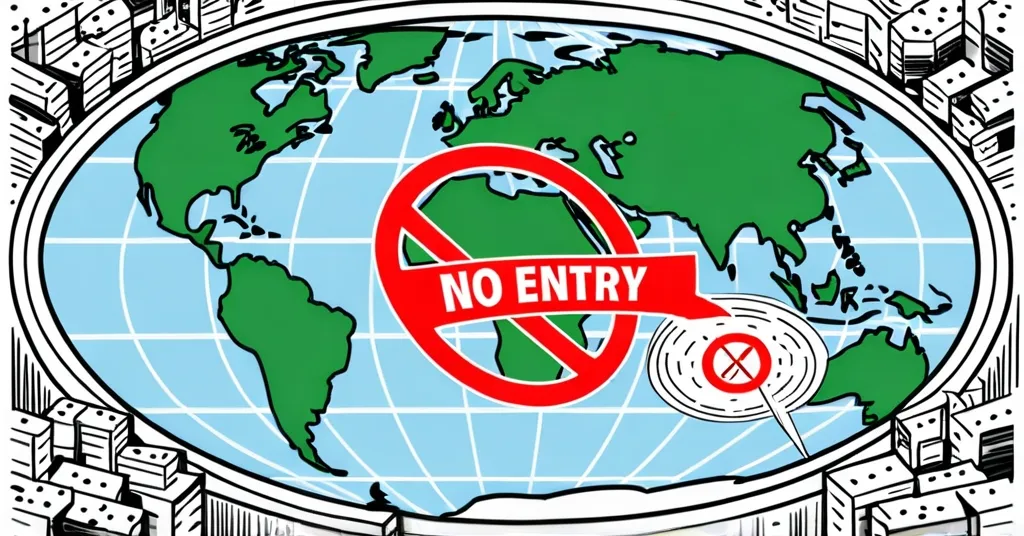Polymarket Banned in Singapore: DeFi Faces Global Regulatory Hurdles

Polymarket Banned in Singapore Under Strict Gambling Laws
Polymarket, a decentralized prediction market platform, has been banned in Singapore due to the country’s stringent Remote Gambling Act of 2014. This ban highlights the challenges faced by innovative DeFi platforms in navigating global regulatory landscapes.
- Polymarket banned in Singapore under 2014 Remote Gambling Act
- Singapore permits only state-run gambling activities
- Polymarket faces global regulatory challenges
- CFTC in U.S. demands regulatory adjustments from Polymarket
- Decentralized technology on Polygon network complicates enforcement
Singapore’s Strict Gambling Laws
Singapore’s Remote Gambling Act of 2014 strictly regulates online gambling, approving only activities run and approved by the government. This includes lotteries and sports betting, which are under close state supervision. Polymarket, with its decentralized model, does not fit this criteria and was banned on January 11, 2023. “Singapore’s Remote Gambling Act of 2014 is basically the ‘no entry’ sign for most online betting activities, unless you’ve got a government-approved stamp of approval,” explains a local expert on gambling laws.
Global Regulatory Challenges
Polymarket’s troubles extend beyond Singapore. In the United States, the Commodity Futures Trading Commission (CFTC) recently settled with Polymarket, demanding regulatory adjustments to align with U.S. laws. The new CFTC chair, Rostin Behnam, has expressed a strong commitment to regulating digital asset markets, stating to the Senate Agriculture Committee, “The Commission’s new chair, Rostin Behnam, reportedly told the Senate Agriculture Committee that the CFTC is ready to be the ‘primary cop on the beat’ when it comes to digital asset markets.” Similar regulatory hurdles exist in parts of the EU and Asia, including China, where decentralized platforms face scrutiny.
The Impact of Decentralization
Polymarket’s use of the Polygon network, a layer-2 scaling solution for Ethereum, adds a layer of complexity to regulatory enforcement. Polygon is designed to improve transaction speed and reduce costs, which Polymarket leverages for its platform. However, the decentralized nature of this technology means there’s no central authority to hold accountable, making traditional regulatory measures challenging to implement. This decentralized approach is a double-edged sword, offering privacy and autonomy to users while complicating oversight.
Future of DeFi and Regulation
The ongoing tension between innovative DeFi platforms like Polymarket and regulatory frameworks is likely to persist as the crypto and blockchain space continues to evolve. While regulators aim to protect consumers and maintain market integrity, critics argue that stringent regulations could stifle innovation. As Polymarket and other DeFi platforms navigate these global landscapes, finding a balance between innovation and oversight will be crucial. The future may see more collaborative efforts between regulators and the DeFi community to create a regulatory environment that supports both growth and consumer protection.
Key Takeaways and Questions
- What led to Polymarket’s ban in Singapore?
Polymarket was banned due to Singapore’s strict Remote Gambling Act of 2014, which only permits state-approved gambling activities.
- How does Polymarket’s technology contribute to regulatory challenges?
Polymarket’s use of the decentralized Polygon network, an Ethereum layer-2 solution, complicates enforcement as there is no central authority to hold accountable.
- What is the CFTC’s stance on digital asset markets?
The CFTC, under Rostin Behnam, aims to be the primary regulator of digital asset markets, as shown by their recent settlement with Polymarket.
- What other regions are facing similar regulatory issues with Polymarket?
Apart from Singapore, Polymarket faces regulatory challenges in the United States, parts of the EU, and Asia, including China.



